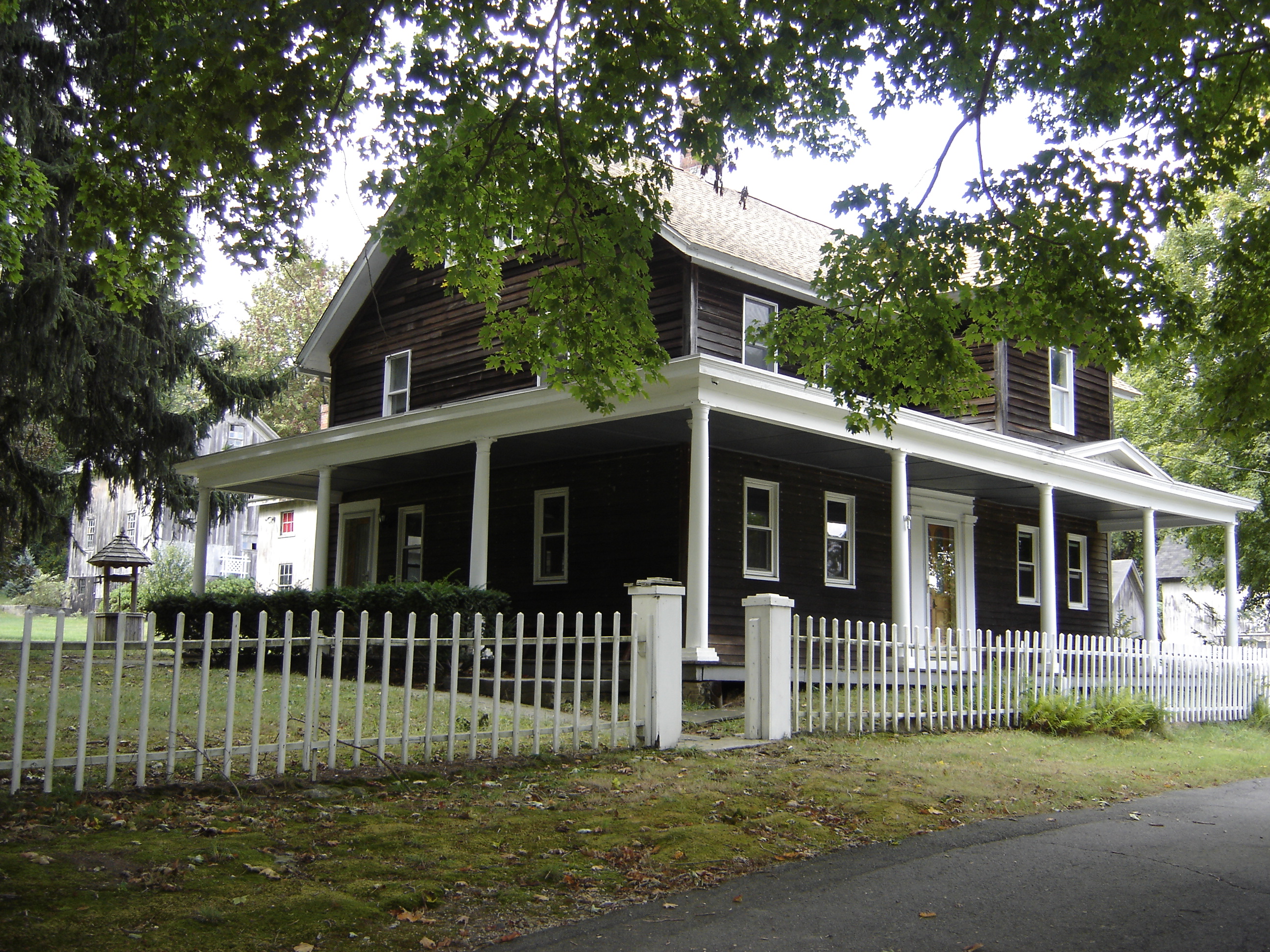
The Captain Christopher Hubbell Homestead (136 Maple Avenue) with its nine room colonial farmhouse surrounded by barns, outbuildings and stone walls is a symbol of Connecticut's farming past.
The house, located in the White Hills area of Shelton, is known by oldtimers as the Warren Hubbell house, though it was built by his grandfather, Captain Christopher Hubbell, in 1803. The farm became known as Wigwam Farm because Indians trekking to Long Island Sound in the 1800's for fishing and clamming would camp on a large flat field below the house.
Warren and his son Sterling ran Wigwam Farm for many years raising Holstein-Friesian cows and bottling and delivering milk in town. It was also a cider distillery and rumor has it they operated a still across the street during Prohibition. Sterling Hubbell sold the house with four acres in 1971 and two acres on the west of the property were later sold off.
We purchased the property in 2010 and have been working to restore it since. The homestead today consists of a 2-story nine room colonial farmhouse, a 3-story big barn, a 2-story small barn, a 2-story tractor shed, a 2-story summer kitchen, a three bay carriage house, a chicken coop and a three-seat outhouse. In 2011 the property was added to the State Register of Historic Places, Connecticut’s official listing of structures and landmarks important to the historical development of Connecticut.
With the exception of "big" jobs like the barn roofs and a new fence (putting up fence posts in rock ledge is no easy chore), we are doing the work ourselves. Both of us are handy and not afraid of hard work but it has certainly been a journey. Being frugal by nature, we try to reuse and repurpose as much as we can. It is the thrifty New England Yankee tradition.
Welcome to our site, share in our work in process and be sure to sign the guestbook.
Renee Marsh and William O'Leary
|